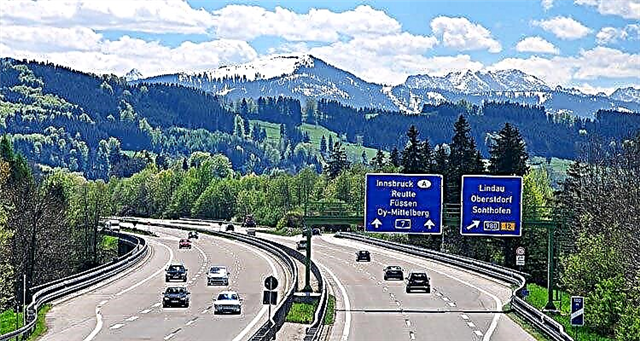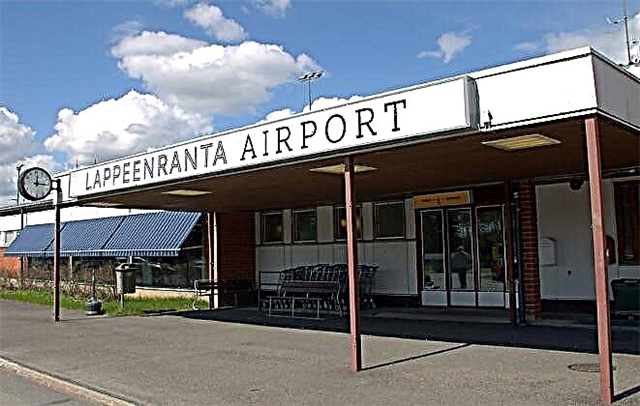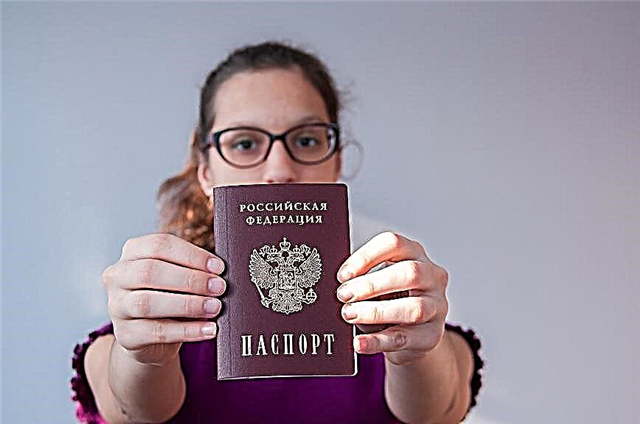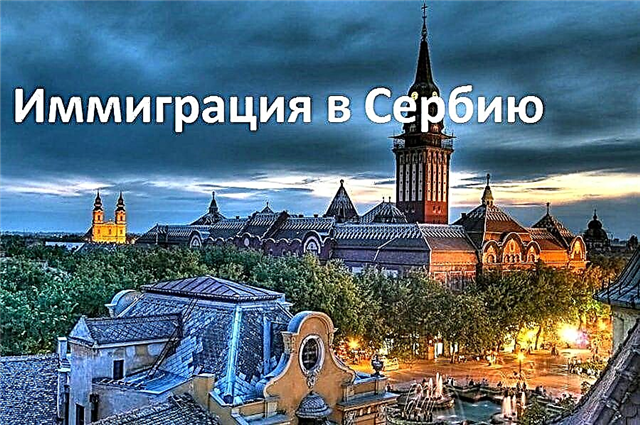The Balkan states attract Russians by their historical proximity to their native country. Here they speak a similar Slavic language, the conditions for moving are quite democratic, and the Serbs themselves are friendly towards Russians. For most visitors, the decisive factor in choosing Serbia for a place of residence is a pleasant climate, but the economy leaves much to be desired - now it is in the initial stages of its recovery.
Life in Serbia
Serbia is a small state located in the center of the Balkan Peninsula between Hungary and Macedonia. Beautiful nature and clean ecology, but there is no outlet to the sea. The climate in different parts of the country is different. So, in the north, summers are humid and hot, precipitation falls evenly throughout the territory, and winters are very cold. In other parts of the state, summers are dry and hot; in winter, cold and heavy snowfalls prevail.

The state has not yet fully recovered from the Yugoslav wars. The standard of living and the economy are at a low level, losing in this respect to Slovenia, Hungary and Romania. Serbia intends to join the EU, but years of negotiations on this issue have still come to nothing.
Now in this Balkan state lives a little more than 7 million people... In recent years, a lot of Russians have appeared among the local population: they quickly adapt and after a couple of months begin to speak the local language fluently.
Serbian cuisine remains not entirely familiar to the Russian people: Turkish, Romanian, Mediterranean cuisines influenced it, therefore they cook various kebabs, kebabs, mutton pilaf, corn tortillas and hominy.
Features of moving to Serbia from Russia
Those who are just wondering whether emigration to Serbia is suitable for them can come here to live for several months. To do this, it is enough to have a valid passport.
And in order to stay in the country, you will need to go through several steps:
- Go to the country on a regular tourist trip. The Serbian government is loyal to the Russians, therefore there is a visa-free regime between the countries, but after entry you need to register with the local police and get a "white cardboard";
- Apply for a residence permit (temporary residence permit). This requires good reasons, including buying a home in the country, getting married with a local resident, starting a business or studying. Residence permit is issued for up to six months with the possibility of extension;
- Apply for permanent residence (permanent residence). The document is drawn up if the applicant has lived for 3 years in the territory of the republic with a valid residence permit.
It is possible to obtain Serbian citizenship after 8 years of permanent life in the country. For those whose ancestors lived here, or have merits before the authorities, there is the possibility of accelerated acquisition of citizenship.
Important! Having received Serbian citizenship, it is not necessary to give up Russian: some migrants live with two passports. And with a Serbian passport, you can travel to all Schengen countries without a visa for up to 3 months.
You May Also Like
5 ways to immigrate to Serbia
Immigration to Serbia is not much different from moving to any other European state. A visitor in the same way needs to apply for a long-term visa at the invitation of an employer, university, relative, or on the basis of starting a business.
Russia and Serbia are on friendly terms, so immigration is not complicated by unnecessary bureaucratic procedures. In addition, in some cases, after obtaining Serbian citizenship, it is possible to retain Russian citizenship.
Those who have already settled in Serbia recommend their compatriots to think about moving if there is a stable source of income in Russia - profit from renting real estate or working investments. In addition, immigration for starting a business would be a good solution: it is quite simple and cheap to set up your own business in Serbia.
There are 5 ways in which the Serbian government can issue a residence permit to a visitor.
Immigration through employment
To get a job in Serbia and stay here to live, you must:
- Conclude an employment contract with an employer who is ready to employ a foreigner;
- The employer, in turn, must obtain permission from the Serbian labor exchange to attract a foreigner to work;
- Receive an invitation from a potential job, on the basis of which a work visa is issued. It is issued for 3 months, after which it is extended for six months or a year. Already on the basis of a work visa, a residence permit is issued.
Only a foreigner who is suitable for the employer in terms of his competence and has the knowledge and skills necessary for work can obtain a work permit. The employer will definitely clarify the qualifications and experience of the potential employee, as well as conduct testing.
Important! The applicant must submit documents for registration of a residence permit no later than 3 months after entering the country. The paperwork will take 3-4 weeks.
Business as a way of immigration
To obtain a business visa, a permit from the labor exchange is not required. To start a business in Serbia, a foreigner needs to register a company in the country or buy a ready-made company, and then hire himself to work in his company.
The minimum authorized capital of the company is 500 Euro, you also need to spend money on registering a company. If the firm is not yet established, the entrepreneur will be required to provide a detailed business plan before registering the business. After the procedure, a visa will be issued, with which the entrepreneur can work and live in Serbia.
You May Also Like
The first visa is issued for 3 months, during which the government regularly checks whether the firm is functioning. If the businessman succeeds in confirming that the enterprise is not a fiction, the permit is extended and a residence permit is issued.
Immigration through education
Education in universities is only paid, but in comparison with other European countries, it is quite inexpensive. So, a semester may be worth from 1500 to 4000 euros... At the same time, the diplomas that the student receives after graduation meet European standards.

Serbia is a candidate for accession to the EU, therefore, educational systems operate in local universities, according to which transfer to institutions throughout Europe is possible.
A student visa is issued in the same way as a work visa - the university sends an invitation, after which the student applies for a visa. Residence permit is issued in full for the period of study.
Important! To get an education in Serbia, you need to study, not give bribes for grades. Corruption is not popular here, and you will not be able to get a diploma without real diligent study.
Immigration through real estate investment
Buying an apartment or house is the easiest but costly way to move to Serbia. Housing here costs about the same as in Russia.
To obtain a residence permit, a newly-made owner of Serbian housing must:
- Prove your financial solvency by presenting a bank statement on the availability of funds or a document confirming the receipt of other income;
- Get medical insurance for a year;
- Convince the police that he does not apply for benefits and is able to support himself.
Buying a home is the most logical and popular way to settle in Serbia. The property owner does not have to worry about the lack of a roof over his head in an unfamiliar country.Moreover, the authorities can easily confirm residence permits for foreigners who buy real estate of any nature in Serbia - from residential to commercial.

Important! When buying real estate, a residence permit is approved not only by the direct buyer, but also by his family members who are going to live with him in the apartment, including pensioners and minors.
Immigration through family reunification
Close or kinship relations with citizens of Serbia is another way to obtain permanent residence.
Depending on the relationship, there are 3 ways of migration:
- Blood relations. Relatives who are in Serbia for permanent residence or are citizens of the country send the Russian an invitation, on the basis of which he draws up a visitor visa. The inviter must also provide a sponsorship letter, where he undertakes to bear all the costs caused by the guest's visit. After entering the country, a Russian is registered and can declare a desire to apply for a residence permit.
- Marriage. The bride or groom from Russia is sent to Serbia by guest invitation. After receiving it, the Russian goes to the consulate, where he is issued a wedding visa for 3 months. If during this time it was not possible to conclude a marriage, within a year you can again apply for a three-month visitor visa, and after registering the relationship, you can start issuing a residence permit.
- Extramarital affairs. If, after two visits by invitation, the matter has not reached the wedding, but the lovers want to be together, they can declare their extramarital relationship (cohabitation). Loyal Serbian authorities give the couple the opportunity to prepare for formal marriage and approve the Russian visa for six months so that the couple will live together for some time. However, if this visit does not end with a wedding, the guest may end up on the list of visa violators and no longer enter the country at all.
Life after immigration: pros and cons
Migrants from Russia speak of Serbia ambiguously, naming both disadvantages and significant advantages. A citizen who manages to get a good job can live here comfortably.
So, the average salary reaches 350 euros, and renting a one-room apartment even in the center of Belgrade will cost at 150 euros... At the same time, you will not have to spend a lot on life. However, it is very difficult for a foreigner to find a job in Serbia. Only highly qualified specialists will be hired, or if there are no local residents willing to work at the proposed place.

Those who have been living in Serbia for a long time easily share the pros and cons of life in this country they have noticed:
| pros | Minuses |
|
|
Immigrant reviews
Russian emigrants note that Serbs treat them with great love and respect. For example, a shop assistant can make a good discount if he finds out that the customer is Russian. And the locals, having heard Russian speech, often come up to get acquainted. Sometimes it is much easier for a Russian to find housing in Serbia than a local resident. Despite the downsides, many newcomers fall in love with this area and do not want to leave.
Vladimir:Finding a job is very difficult. It makes sense to get a residence permit for those who already have a business that brings a stable income. The rest, in my opinion, have nothing to do here. Economic growth is only in the future, and we will wait for it, probably, in 20 years, as well as the development of the real estate market.
Yaroslav:I never thought that I would move to live in Serbia. Accidentally came here and immediately fell in love with the republic and local girls, moved and have been living here for almost a year. I live in the city of Novi Sad and I think that it is the best in the country. It is the most beautiful and well-groomed, it resembles a city somewhere in Europe. I don't feel like an emigrant, here you are a friend for everyone. Products cost the same as in Ukraine, some are even cheaper. Without any special problems, you can find a small inexpensive apartment, I rent a two-room apartment for 100 euros, but there are also odnushki for 80 euros. I can't say anything about work, since I myself am a businessman - I have a small clothing store in the city center.
Sergei:Moved to Serbia from Russia more than a year ago. I like everything, but it is impossible to get a job. I advise you to come only to those who have a stable source of income or remote work. You can implement some original idea with your own business and make money on it, but most likely you will need Russian connections. The products are of high quality and inexpensive, the population is friendly and responsive. True, people are all straightforward in Slavic, everyone speaks to their faces, they have never heard of European tolerance here. For some, on the contrary, this is a big plus.
It is quite easy to get a residence permit in sunny and hospitable Serbia. Permanent resident status can be obtained after 3 years of being here with a residence permit, and after another 8 years you are allowed to apply for citizenship. Most of the Russians who have emigrated are content with life in this country with cheap food, clothing and housing. However, finding a job here is not easy, so locals recommend moving with a ready-made business idea or an established source of income.











